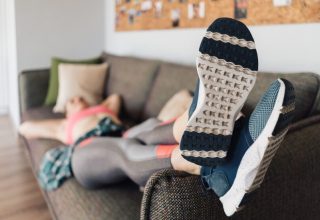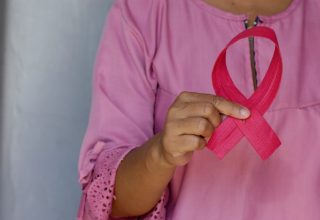Medical Conditions Associated With Grieving Seniors
As we tend to age, we start facing our number one great enemy –death. However, we don’t fear death, but the loss of a loved one. Losing a loved one, especially a spouse for the elderly, can be that painful. It may take the grieving spouse some years even before they lessen the devastation and sadness.
The grieving process comes mainly in five main stages, acceptance, depression, bargaining, anger, and denial. Although it is a belief that we don’t grief through these stages, they can help in the healing process.
People get the mood swings that come and go. These mood swings will diminish in both intensity and frequency until one gets to the emotional adjustment level.
Although there is no wrong or right way of grieving, there are always some healthy ways that can help in coping up with the depression and pain. The seniors may never accept the loss, but they can take their new reality and begin a new life once again. As a caregiver, you should play an integral role to help the seniors through the grieving process.
The overwhelming feeling of helplessness and deep depression is the most severe stages in the grieving process. So, during these difficult times, it is always crucial for you to give your support.
More so, during the grieving stages, there are always some medical conditions that can follow. In case you see the seniors taking in more medications or dosages, you may need to help them. The reason is that they struggle with the condition and prefer to use drugs to relieve the pain.
What is the importance of support to the grieving seniors?
Grieving will take control of the physical body, regardless of age. But for seniors, the symptoms of loss could be even more intense. It may be due to the magnitude of change they are experiencing and the weaknesses of their frame.
Emotionally, this stress is always outside, especially in the case of losing a spouse. And at times this emotional breakdown can lead to other physical ailments that could be weakening and devastating
Therefore, the most critical factor during the healing process is offering full support. When you share the loss, this could make the grieving burden much more comfortable. As a caregiver, you should listen to the seniors. Let them open up themselves to you.
You can also encourage them to join some support groups so that they can share their experiences with others with similar experiences. It makes them strong.
When seniors experience loss, they can display some behaviors that don’t match their personality. It will need some understanding and patience from your side as they walk through their grief. Just be keen on observing what is triggering the emotional outbursts. Help them by taking them through the activities they enjoy, like gardening or touring places.
In the cases where the grieving has brought about a lot of anxiety, stress, and depression that doesn’t let up medical care is vital. You can ask the seniors to visit the doctors for an evaluation. Medications can be prescribed to help through the grieving process.
The medical conditions that come with the grieving process among the seniors
During grieving, the elderly can get very much devastated. And thus, this could trigger various health conditions such as the ones below.
1. Fatigue
Fatigue is never a substitute for sleepiness. Becoming more tired will happen naturally with age. However, it could also be an indicator of something else. When the senior adults experience significant changes in their lives or decreased hormone levels, this can lead to fatigue.
When one is fatigued, they will not be able to complete or coordinate tasks appropriately. Besides, fatigue could also bring about a decrease in energy levels and joint complications as well.
In the elderly trying to renew their lives, hydration, exercise, and consistent meals can be ideal in helping fight fatigue.
2.Depression

Death is among the leading factor that contributes to depression. When the senior’s spouse passes away, they may experience difficulties in sleeping or may seem ill-tempered at most times. It may be a clear indicator of struggles with depression.
Nonetheless, these depression signs can be dealt with by encouraging the senior to engage in a new hobby or physical activity they like. Since depression will lead to the withdrawal of activities that the seniors and their loved ones once enjoyed, you can offer to do such activities with them as well.
3. Sleep deprivation

When one is experiencing emotional pain, they tend to have no sleep. Oddly, our bodies will need enough sleep for them to heal from the physical and mental confusion of the grieving process. Research has it that lack of enough sleep could trigger the risks of dementia.
Always try looking for signs in the seniors that they are not having enough sleep. Look at them whether they are napping or yawning more than usual and the under-eye bags. Inquire from them if they feel restless and ask them whether they can complete a sleep study to help them improve their sleep.
4. Anxiety
At times, it may be hard for the seniors to express their anxious thoughts to you. But you can recognize an anxiety disorder within their responses to the small changes in their daily routines. You can consider talking to your loved one and get to know the type of task that is causing them significant concerns.
By helping them through the small tasks or hiring someone to perform the tasks could help upset their way of life. You could provide them with services such as housekeeper, a lawn care company, or repairman.
Conclusion
At times of grieve, the seniors can be struggling with some of the above medical conditions. You can help them through these grieving processes by providing them all the care they need. Make conversations with them to catalyze a happier outlook.
Different people will handle the grieving process in various manners. However, the seniors addressing the symptoms as they occur could be one of the best ways to grieve healthily and positively.
Read More:
- 15 Important Questions to Ask Your Dentist
- How to Get Rid Of Foot Odor
- How video conferencing benefits healthcare industry?



